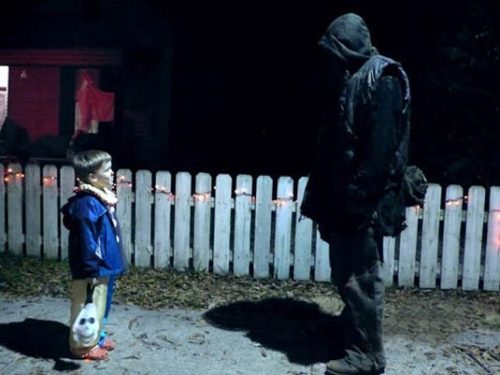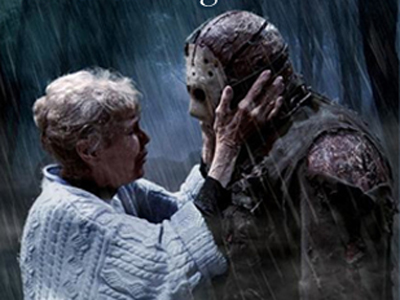
In most slasher films there is always that moment in the end when the killer and their motive is revealed. From there comes a very lengthy, dialogue-filled scene between the killer and the final victim. As an audience we sit and wait for them to shut up and get on to the big fight between our final girl/guy and the killer. But then there are also times when you ask yourself why after almost 90 minutes, the killer finally has the main target in their clutches, and instead of finally killing them, they talk their ear off, giving the victim the chance to escape. This leads me to the question of whether Scream actually got it right in its discussion of motives. Was Billy right when he said it’s a lot scarier when there isn’t a motive? Or do the “incidental†motives that Randy speaks of earlier in the film something that adds to it? Keep in mind that films mentioned here are not necessarily bad, this is purely on the topic of motives.

Throughout the history of slasher films, there have been numerous ones that do have a motive and some that don’t. With Friday the 13th, Nightmare on Elm Street, Happy Birthday To Me, I Know What You Did Last Summer, Urban Legend, Scream, etc. These films all had killers who had a particular motive for why they are on this killing spree. More often than not, the motive for killers in slashers are always due to revenge. This fact in itself makes motives very tiring and adds nothing new. Even Halloween, which initially had no motive for Michael’s killings, changed in the sequels and gave Michael a motivation to kill, even though to the series’ credit, the motive here was different. I believe that this motive is used most often is because it helps incorporate the twist of who the killer is. And granted sometimes it works, I’m not going to lie, I didn’t see the identity of the killer in Urban Legend coming at all, same with a lot of the reveals in Scream. They were most definitely shocking, but they were all seeking revenge in some form. When there isn’t the revenge motive, there is also the motives that are just plain stupid. Examples being Urban Legends: Final Cut, Sorority Row (even though I loved this one), Bloody Homecoming where the killer wants to take credit for another person’s film project, the killer is doing it “for his girlfriendâ€, or the much older gym coach wants revenge for the death of the student she was screwing (yes, it’s revenge but it is still stupid). With all of this said, motives can make or break the final act, or even slow it down.

If there isn’t a motive to the killer, we just have a straight-up psychopath. Such psychopaths are mentioned in Scream like Norman Bates, no clear cut motive here because he was just a psycho, or Hannibal Lecter, no real motive here either. As mentioned above, the original Halloween didn’t have a motive for Michael Myers, he simply returned home and began stalking these young women. Black Christmas is also a perfect example with Billy murdering the unsuspecting sorority sisters for no real reason. Even the delightfully bad Slumber Party Massacre featured a killer who had no motive for his killings. Some could say that even Jason in the Friday the 13th sequels had no real motive after murdering Alice in the opening of 2. The idea of a psychopath stalking people and murdering them is chilling and makes you very wary and wanting to lock up your house. But does this also leave the viewer wanting more? I have no doubt in my mind that there are people who will get pissy if a killer doesn’t have a motive and they think “that’s it� Or maybe it could just seem repetitive for some. Even as I wrote those examples, it was semi-amusing that I was writing the same thing for each title. They’re just a psychopath.

Now of course this is all going to depend on the viewer and what they prefer to see in a slasher film and what effects them. But looking at the bigger picture, the question remains, is it scarier or more appealing to have a motive and the killer is someone they know, or scarier to have a person unknown to them stalking and killing people around them? Both can also have their flaws, but is there a concrete and agreeable answer as to which is much more terrifying?
–Cody Landman
